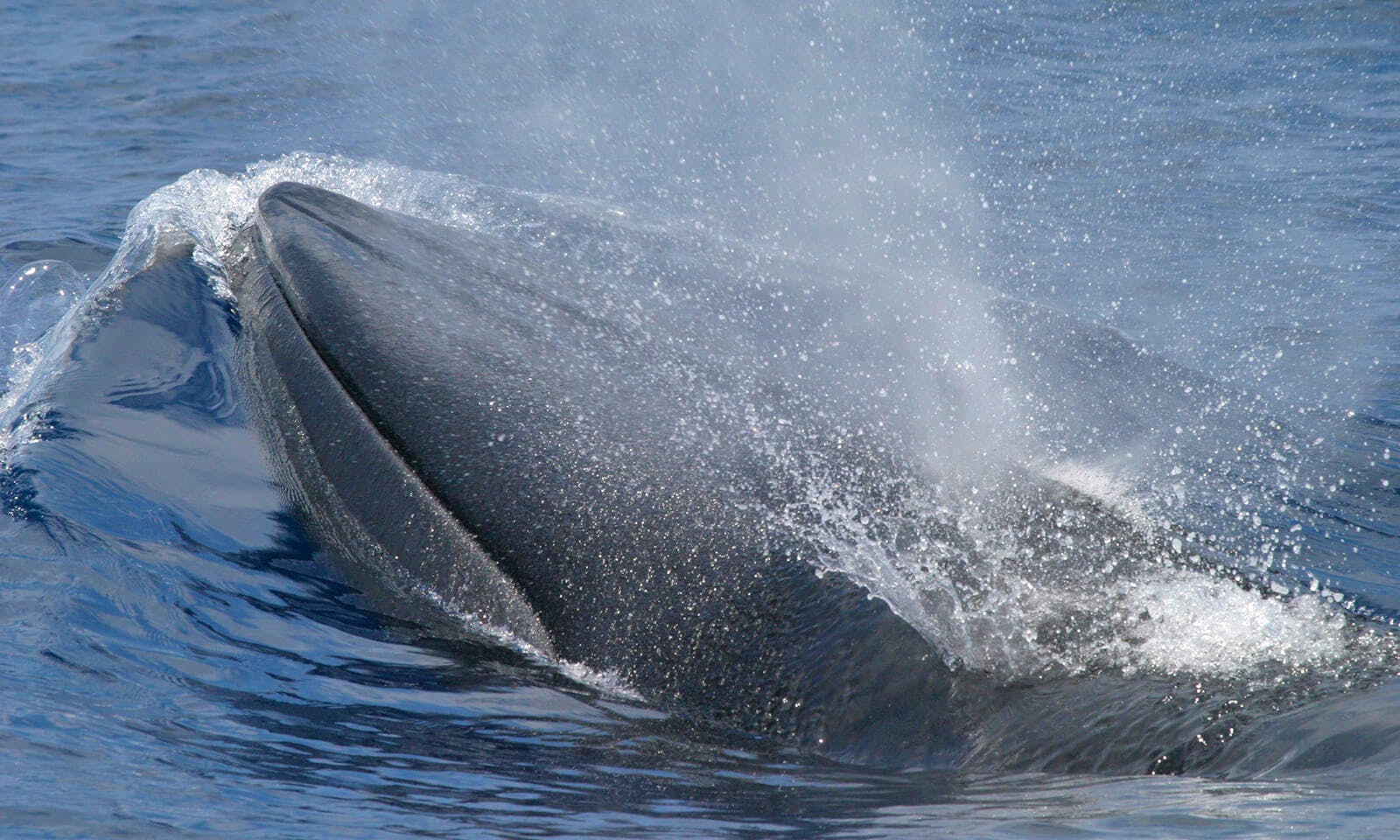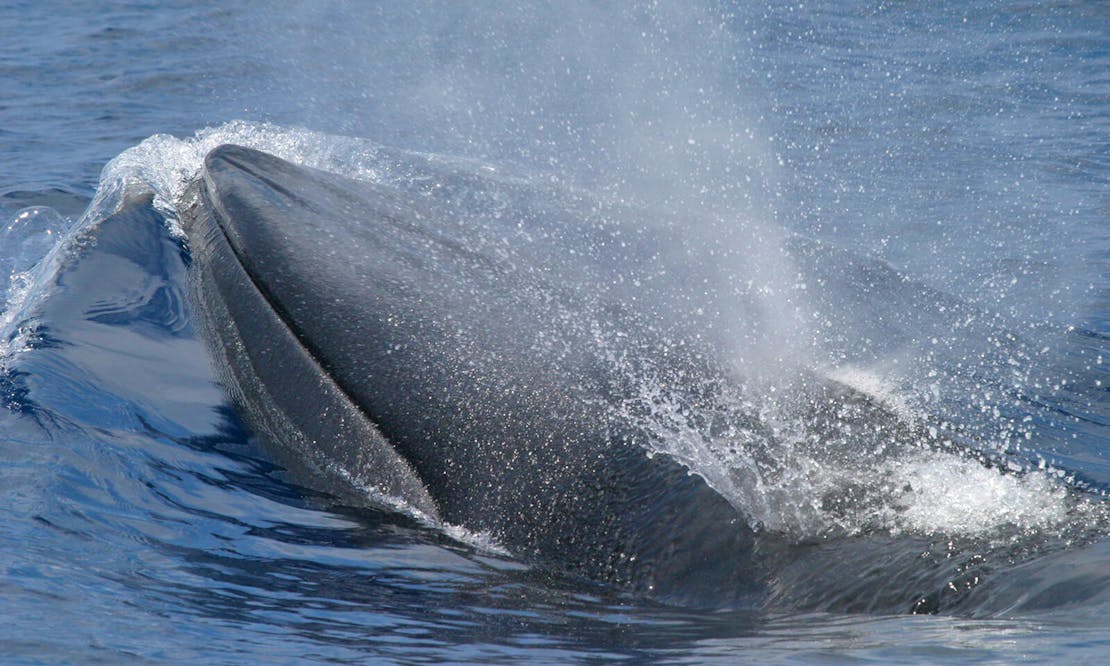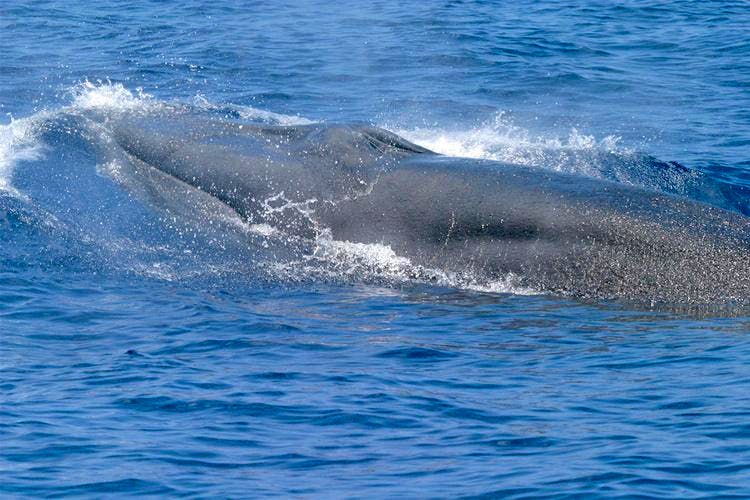When Americans think of the Gulf of Mexico, many things may come to mind. Beautiful beaches. Great fishing. Bustling cities like Pensacola, Gulfport, New Orleans and Corpus Christi. Oil and gas production, and energy development.
Perhaps the catastrophic 2010 Deepwater Horizon oil spill, which devastated marine life in the Gulf.
Perhaps all of the above.
One thing that might not come to mind, however, is the Rice’s whale.
Rice’s whale is a large whale that can only be found in the Gulf of Mexico and was classified as its own species in 2021, just a few years ago. Scientists estimate there are fewer than 100 of the whales left. When a species’ population is that low, protecting it and its habitat is absolutely vital to keeping extinction at bay.
The Rice’s whale was once thought to primarily live in DeSoto Canyon, an underwater canyon in the Gulf off the western coast of Florida. We now know that the whale’s habitat extends off the coasts of Louisiana, Mississippi, Alabama and Texas as well. NOAA Fisheries, the agency in charge of protecting and recovering the Rice’s whale, has proposed a rule to designate 28,000 marine acres in the Gulf as critical habitat. The long-overdue rule is expected to be finalized by the end of August.
“Critical habitat” is the specific habitat needed to conserve an ESA-listed species to the point it no longer needs protection. NOAA Fisheries is required by law to decide what habitat is critical for conservation when a species is listed. The agency says the Gulf habitat proposed for designation “contains features essential to the conservation of the species” and may need “special management considerations.”
Designating habitat as critical does not turn it into a closed area with restricted access in the same way a national park or wildlife refuge might. Instead, it requires federal agencies to work with NOAA Fisheries to ensure that no actions are authorized, funded or taken that could negatively impact or even destroy that habitat.
Last October, Defenders of Wildlife joined 13 environmental groups in submitting detailed comments in support of the proposed designation. More than 6,400 Defenders members and supporters added their voices to the effort, signing a petition urging NOAA Fisheries to finalize the proposal.
While we wait for the designation, the threats to the Rice’s whale aren’t slowing down. Rice’s whales rest just below the surface of the water, making them a vulnerable target for vessel strikes and fishing gear entanglements. Oil spills rain down and contaminate the Gulf. Ocean trash runs off from the land. Seismic air gun surveys, used by oil companies to find drilling deposits, further disturb the water and the whales.
Unfortunately, some Members of Congress have proposed legislation to delay or block the critical habitat designation. In May, four senators wrote a letter warning against “unnecessary measures for the Rice’s whale at the expense of communities along the Gulf of Mexico.” They claim that saving the whale would do too much damage to the shipping and energy industries. Other members of Congress are seeking to block NOAA Fisheries from using any funds to move the designation, or any successor, forward.
If such claims sound familiar, it’s because they are. Warnings of economic catastrophe are made over and over again by those who oppose conservation, especially when conservation efforts touch the exceptionally lucrative oil and gas industries. And it’s hard to take these particular claims seriously when a critical habitat designation does not impose any new restrictions. It’s harder still to imagine losing what is, essentially, “America’s whale,” which is primarily found in U.S. waters.
We hope the day will come when the Rice’s whale is associated with the Gulf as strongly as its famed beaches, fishing, cities and industries. But that day will only happen if we fight to protect its habitat and save the species from extinction.









